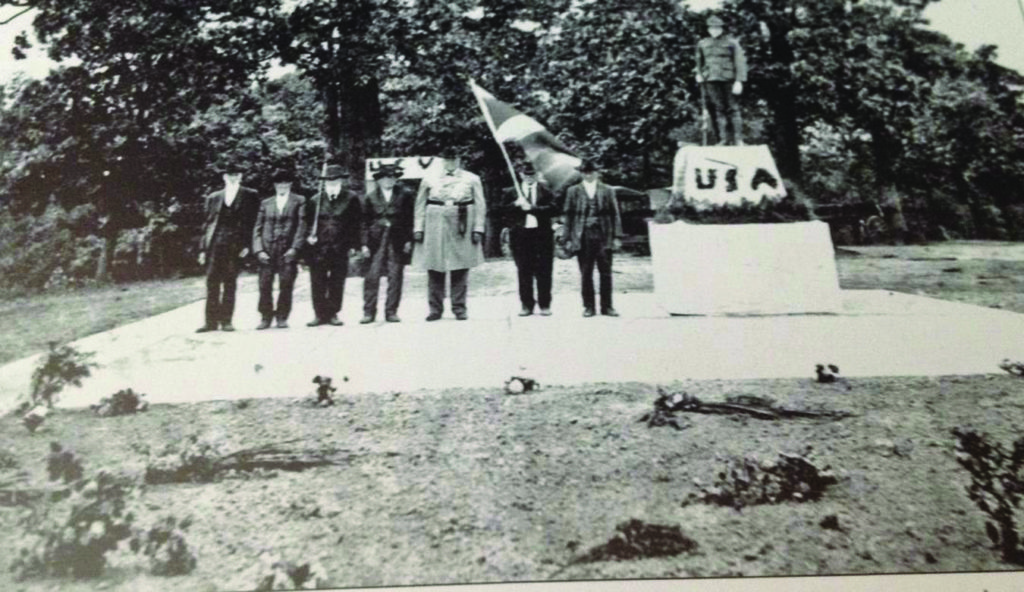 As you travel down the G.B. Alford Highway, aka “the bypass” have you ever stopped to ponder just who this G.B. Alford was? Or, when you hear the name Leslie-Alford-Mims House when describing the beautiful, old Antebellum house behind town hall, have you ever made the connection between the last names?
As you travel down the G.B. Alford Highway, aka “the bypass” have you ever stopped to ponder just who this G.B. Alford was? Or, when you hear the name Leslie-Alford-Mims House when describing the beautiful, old Antebellum house behind town hall, have you ever made the connection between the last names?
George Benton Alford could be described as Holly Springs’ Founding Father. This progressive businessman had a dream of making Holly Springs into an industrial city. He is credited and largely responsible for taking what was described as a “deserted village’” after the Civil War and leading it into a boom town at the turn of the century.
Alford bought the Leslie house, enlarging it to almost double the square footage in 1876. George and his wife, Charlotte, loved to entertain so naturally the expansion included a ballroom and small gallery for an orchestra. At this time a kitchen and east wing were added to the house. In order to accommodate the numerous carriages that would bring attendees to the many events at the Alford home, an oversized Porte Cochere was built at the west side of the house near the ballroom.
W
hen not entertaining, Alford’s mind was spinning with ideas on how to turn a sleepy little town into a bustling center of business. Almost immediately, Alford petitioned to get the town incorporated. He built a general mercantile store that still stands at the corner of Main and Center Streets. According to Elizabeth Reid Murray’s WAKE, Capital County of North Carolina, “Alford’s store carried guano, farmer’s supplies, naval stores, wagons as well as buggies, and he was also an agent for brand name buggies and wagons as well as for the White sewing machine.”
Reid also writes of Alford’s establishing the Holly Springs Land and Improvement Company which had control of most of the best sites for factories. Alford sited that the town is well located for almost any kind of manufacturing enterprise. He added that water supply for drinking and for steam purposes are inexhaustible, of purest water, he boasted.
He also noted that labor was cheap and abundant.
By 1898, he and twenty other prominent men in the community received a charter of incorporation from the general assembly of the Cape Fear and Northern Railroad. Members of the Duke family took over the task, and the rail line which ran from Apex to Harnett County was completed the following year.
The Cape Fear Enterprise, a four-page weekly paper which made its debut in 1899 where Alford was the editor, treasurer and business manager, brought news from the up and coming Holly Springs into the homes of surrounding townships. Subscription rates were twenty-five cents per quarter or ninety cents for the full year. Reid tells in her book, “The personal columns of the newspaper were full of comings and goings of families visiting each other in and from nearby towns and of social events in the various communities.”
Alford’s mind was always thinking, thinking, thinking. Soon, another addition to the house was made in the 1900’s when Alford sought to capitalize on the area’s natural beauty and resources by developing the five freshwater springs on the property into a health spa-like resort. Several guest rooms were added during this renovation to accommodate the reservations he hoped would be coming for folks arriving in Holly Springs to “take in the waters.”
Not only was Alford a man with a vision, he was an imposing physical figure. He was quite tall, head and shoulders above the average adult male. He most assuredly was used to getting his own way with little or no argument. Respect for this man was almost undeniably certain. Shirley Hayes wrote about Alford in a article in 1996 for the Neighbors Newspaper describing that it was Alford’s leadership of the local United Confederate Veterans Troop and his devotion to keeping alive the achievement and sacrifices of the 41st Regiment that earned Alford his honorary title of colonel.
Truthfully what we call today, a mover and a shaker: Alford had his fingers in many pies in and around town. One has to wonder what he would think of his town today? We now have the industry and manufacturing he envisioned. The numerous retail stores, the various schools, restaurants, healthcare options and countless homes. I would be apt to think he would be in awe of it all and, I might imagine, secretly proud at the groundwork that he laid for this all to come to fruition.